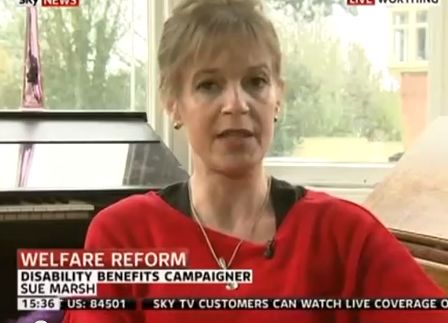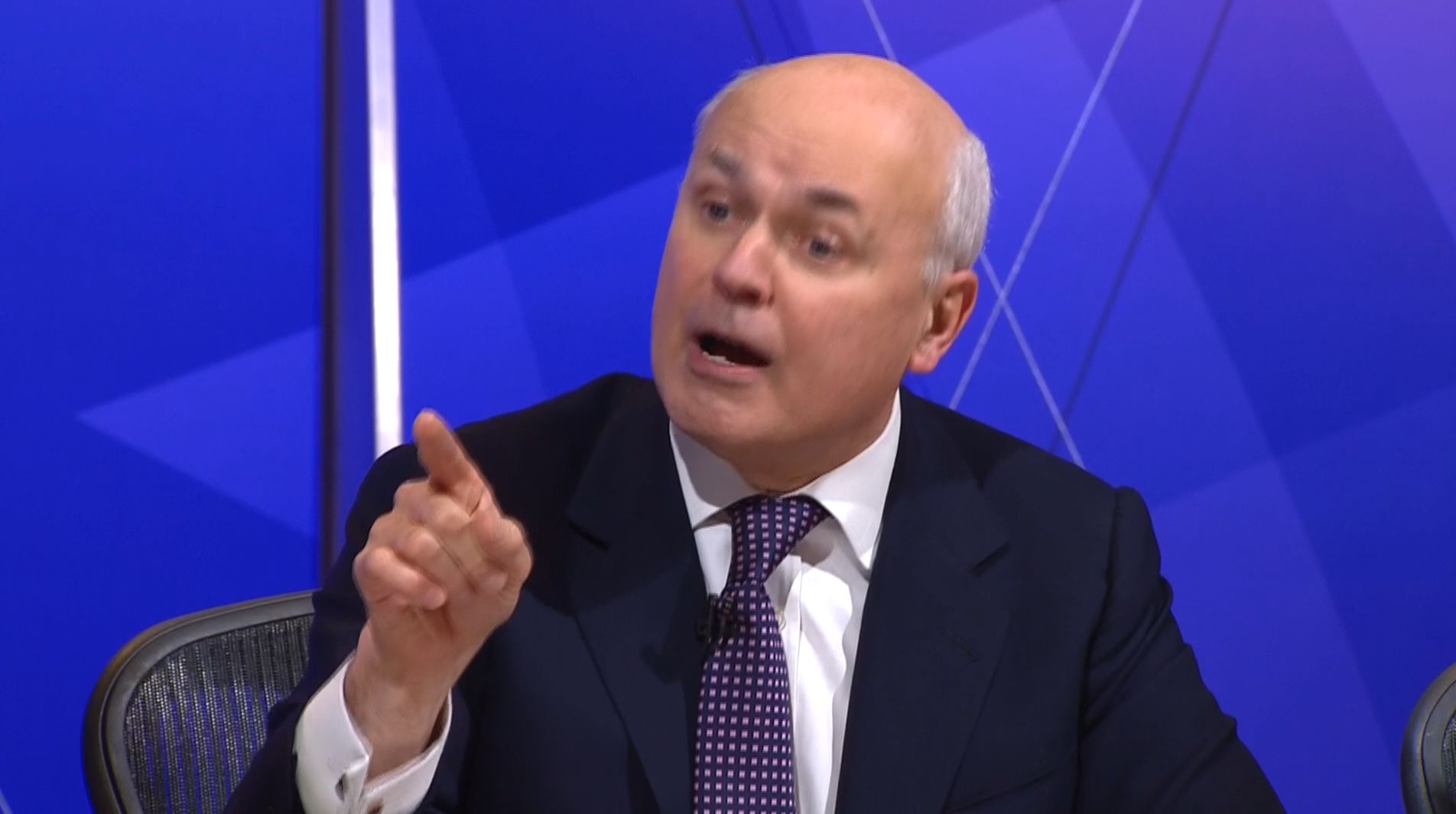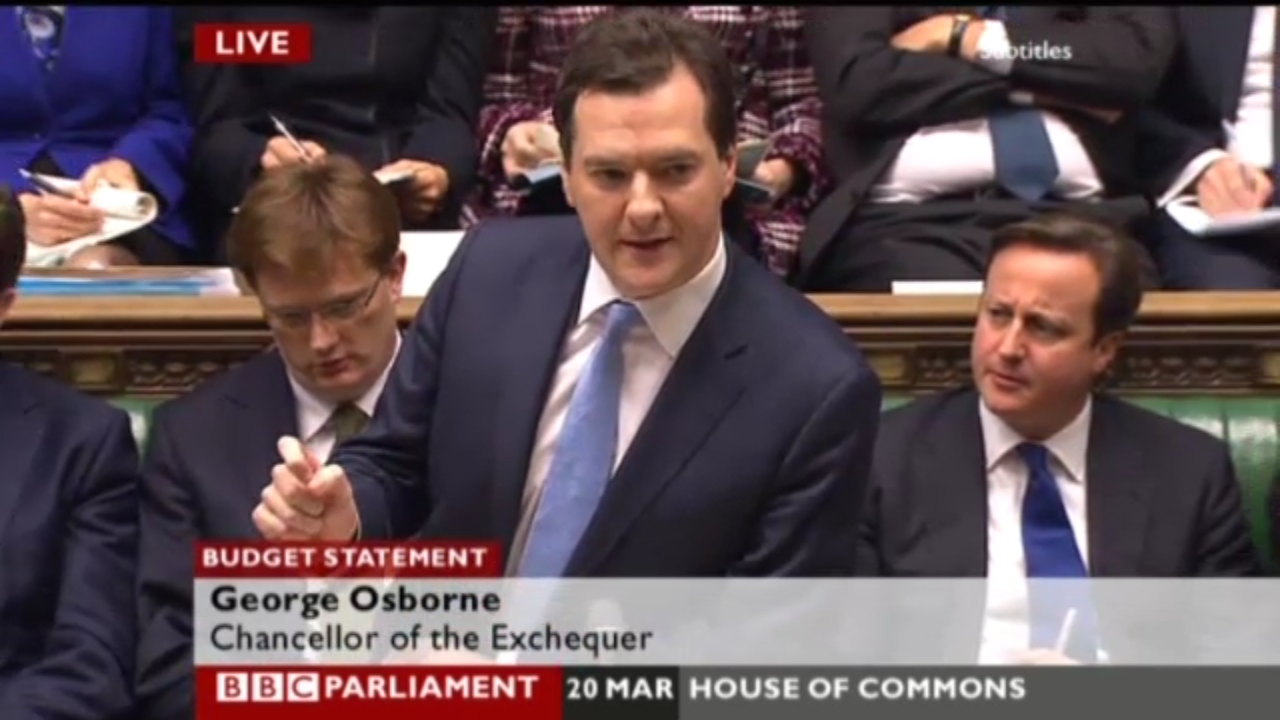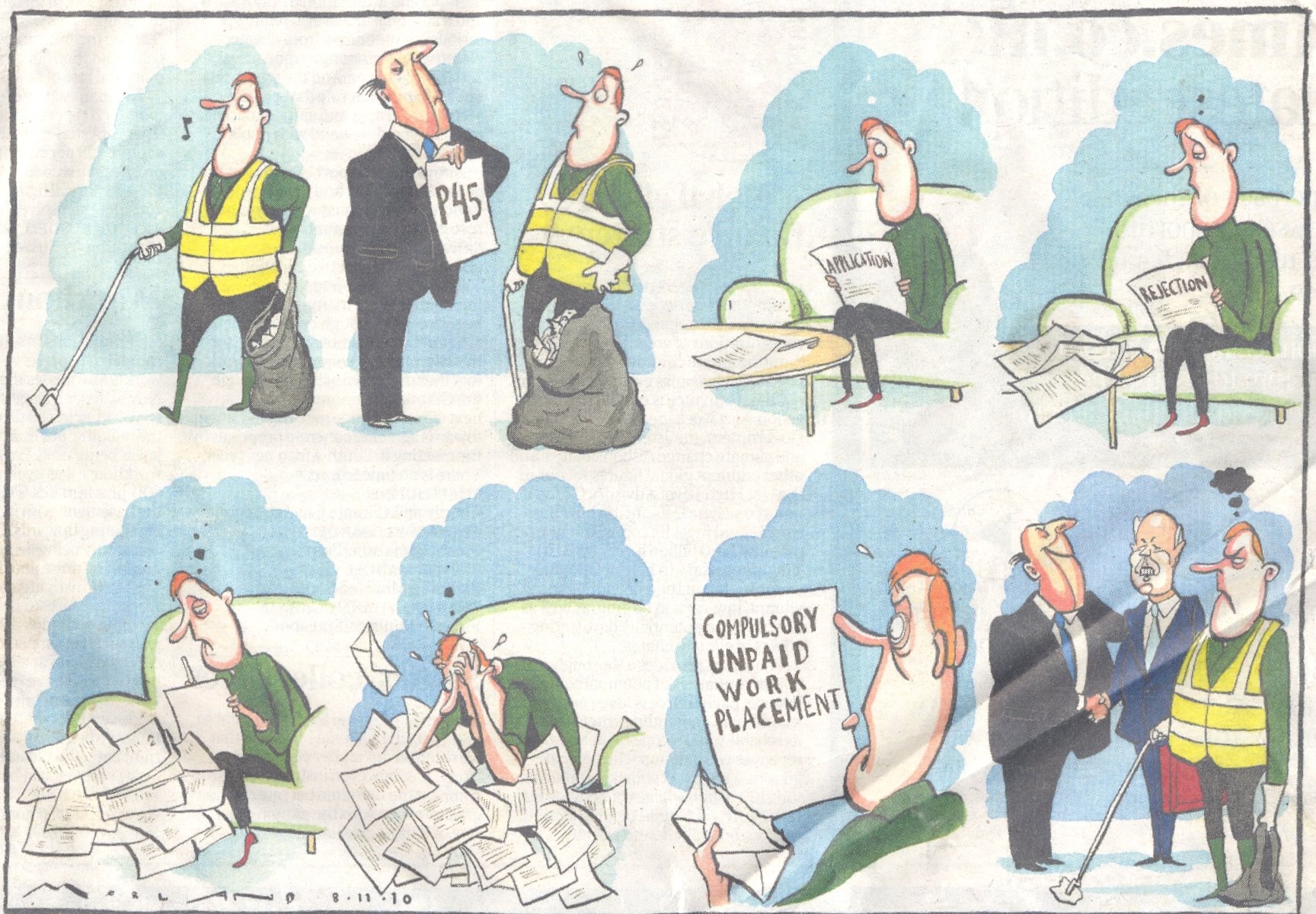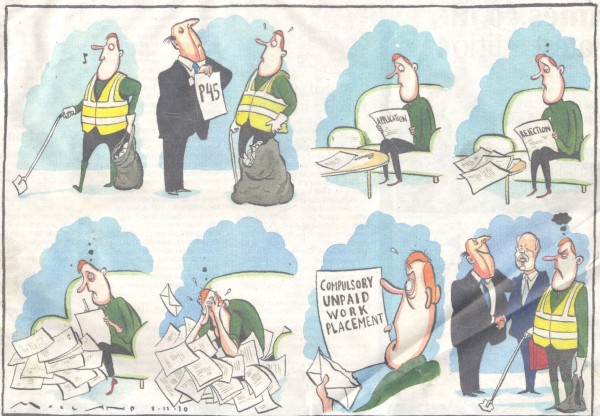When people tell me that I should not criticise Labour because I am being divisive or that I must vote Labour to get the Tories out it’s a kick in the guts. I’m being offered a choice between a party that will rob and beat us or a party that will rob and beat us a little less and sometimes give us cookies afterwards.
https://twitter.com/Cadoret/status/313397860425162753
“Today in Liverpool, and in many other cities across the UK, Labour attempted to capitalise on the anger and fear surrounding the bedroom tax by holding their own rallies. It’s worth noting at this point that, much to the anger of people who have already started organising in their communities, Labour did fuck all to try and contact the aleady existing grassroots tenant groups – you know, the people who will be on the front line when bedroom tax hits hard.” - Quote from Magic Zebras: Labour can’t co-opt our anger
(Note that I am aware that the bedroom tax protests were organised by Labour Left and not Labour. I include the above quote as an example of the anger and sense of betrayal held against Labour and the obliviousness of some Labour activists.)
Labour are better than the Tories, but the bar for that is not high. I have no confidence that Labour will actually undo any of the devastation that the current government are inflicting on us. I have no confidence that Labour will actually bring provision of the NHS back under state control, restart local services, or rein in the banks. I have many good reasons not to trust Labour.

Before I was angry with Tories, I was angry with Labour. Very angry. Labour destroyed rights and civil liberties in the name of fighting terrorism and people we don’t like. Labour introduced the Regulation of Investigatory Powers Act which gave extensive powers to government to spy on electronic communications, led to local councils spying on people over school places, litter dropping and dog poo problems, and made it a crime punishable by two years in prison to refuse to incriminate yourself by handing over encryption keys.
Labour gave us control orders that let them keep people under house arrest forever because the evidence against them is secret or non-existent. Labour gave the police the ability to put people in prison for 28 days without charge never mind trial, and they wanted it to be 90 days.
Labour gave us ASBOs which let a judge make something a crime punishable with prison where before it was legal but merely annoying. Labour gave us dispersal zones which let a power-tripping police officer order people to leave the area on a whim. (I had one outside my house.)
Labour gave us war in Iraq and Afghanistan, in the face of protests by millions.
Labour changed the law to attack the right to protest outside of Parliament because one anti-war protester irritated them.
Labour tried to bring back ID cards, and worse, an identity database that would record numerous trivial details about each of us that added up to a massive intrusion by the state.
Labour replaced Incapacity Benefit with Employment Support Allowance and gave the contract to Atos to assess everyone that claimed it. It was Labour that decided that the medical expertise of your own doctors and consultants was not worth as much as some jumped-up Atos employee ticking boxes on a computer while ignoring what you tell them.
Labour are neoliberal - they support privatization, deregulation, decimating the public sectore and outsourcing everything possible to the private sector. Labour bailed out the banks at vast expense - some £800 billion. The bulk of our current national debt, in fact.
Labour introduced competition to NHS providers. Labour brought in the purchaser-provider split, commissioning, and competition rules, and PFI, all of which made the current destruction of the NHS possible. Labour handed over our hospitals to Private Finance Initiatives which allowed private companies to run the hospitals while charging incredible amounts of interest and extortionate fees for the simplest of maintenance tasks.
Sure, Labour did some good things too. Labour got the deficit under control before the bank bailout. They actually ran a surplus for a few years. Labour fought for social justice and against child poverty. Labour fought for inclusion and equal rights. Unlike the Conservatives, Labour has members I actually consider to be decent people and who fight for justice and for good. But Labour has a great deal more members who stand for all of the bad things I just mentioned.
I am not telling anyone not to support Labour but these are the reasons why I can’t vote for them. There are good people working to change Labour from the inside and I salute them - MPs like Michael Meacher, activist members like Sue Marsh. But I cannot give my vote to Labour, and the LibDems took my vote and handed it over to the Conservatives. If Alternative Voting (AV) had been voted in then Labour would have been my second choice on every future ballot but as things stand If I can’t vote Green or Independent in future elections then I will spoil my ballot rather than vote for everything that I saw Labour do. That may be divisive, but so be it. I can’t endorse Labour’s past or risk endorsing what they do in the future.
Don’t blame me, I voted for Kodos.

